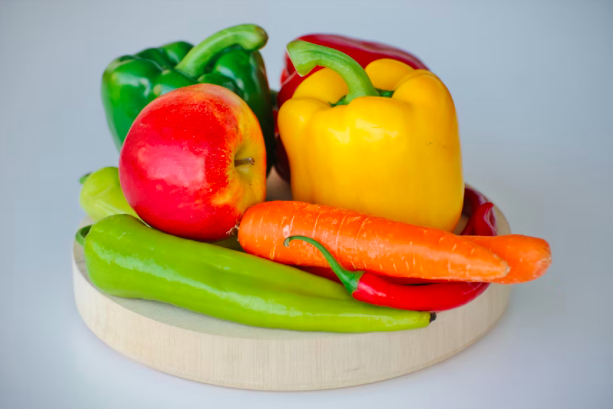Health advice seems to be constantly changing. We can go through an entire year and experience multiple drastic changes to our diet, only to return back to square one after realizing that those new dietary changes weren’t for us. But whatever kind of diet you follow, there’s usually one piece of advice that will always be relevant; eat more produce/fiber (fruits and vegetables).
But some of us may find it a little challenging to introduce more fruits and vegetables into our diet. Perhaps you don’t really eat much in the first place or maybe you’re not a fan of how they taste. Whatever the case may be, we’ve put together a few simple tips to help you consume more fruits and vegetables.

Drink more fruits and vegetables
One of the easiest ways to consume fruits and vegetables these days is to make drinks. Most fruits and vegetables have plenty of water content, making them great candidates for things like smoothies. You can also use fruits that are high in water content, such as watermelon, to use as a base for a healthy and nutrition-packed drink. You can learn how to make watermelon juice with relative ease and it’s a fantastic way to keep yourself hydrated as well. It helps to have some kind of juice blender to make these drinks since it gives you a lot more choice.
But do keep in mind that fruits tend to be quite high in sugar content. Citrus juices can also be bad for your tooth enamel, so it’s best not to go overboard when making your own drinks. We suggest adding more vegetables such as kale, carrots, beets, and also cabbage, instead of just mixing different fruits.
Serve salads with everything
Salad is incredibly easy to make and can add a wonderful mix of textures and flavors to virtually any meal. Add some salad as a side dish to replace rice and pasta, or consider putting some in your sandwiches. If you find that salads are a little boring, then you can try using different dressings to add some extra flavor. Just be careful when adding a dressing to your salad because some of them can be very high in calories and fat content.
There are two handy kitchen tools that can help you make salads more conveniently; a salad spinner and a large mixing bowl. A salad spinner helps you quickly dry all of your salad leaves before you mix them with your dressing, and a large mixing bowl helps you incorporate everything with your dressing.
Do you always need to buy organic?
Wherever you go shopping for fruits and vegetables, you’re likely to find both organic and non-organic options to choose from. While organic does tend to be a little more expensive, it’s usually worth it for certain fruits and vegetables. However, if money is an issue then it’s perfectly fine to skip buying organic, especially if there’s a huge difference in price. You may find that organic can be a bit cheaper if you visit a farmer’s market instead of going to your local supermarket. You’ll also be supporting local producers which is always a nice bonus.
In short, don’t ever feel bad for not buying organic fruits and vegetables, and you shouldn’t let it be a factor when it comes to consuming more healthy foods.
Should you avoid buying frozen?
Frozen fruits and vegetables tend to have a bad reputation, especially when you compare them to buying fresh. However, bulk frozen fruits and vegetables can be extremely economical and often a bit easier to cook and prepare, especially if you’re in a hurry or like cooking in large batches for meal prep purposes.
Thankfully, most of the nutrients are kept during the freezing process, but most vegetables are quickly blanched in boiling water before being frozen. This blanching process is where lots of nutrients can be lost. The purpose is to kill harmful bacteria, but it does end up destroying some of the nutrients too. This doesn’t apply to fruits, so you can expect all of the nutritional content to still be there when you consume frozen fruits or use them in smoothies and desserts.
In short, frozen fruits are perfectly fine. They’re a great option if you want to save space or if some recipes call for frozen fruits. For vegetables, try to avoid buying frozen if possible as anywhere from 10% to 80% of the nutritional content can be lost during the blanching process that takes place before freezing.


